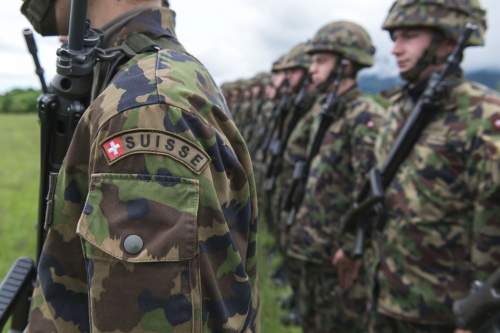Michel Houellebecq
Submission: A Novel
Trans. Lorin Stein
London: Heinemann, 2015
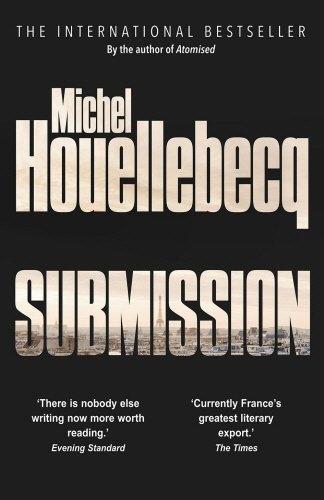 Michel Houellebecq is one of the finest novelists living today. His most recent novel, Submission, is now out in English. It confirms my long-held suspicion that Houellebecq is a man of the Right, whether or not he admits it to us, or even to himself.
Michel Houellebecq is one of the finest novelists living today. His most recent novel, Submission, is now out in English. It confirms my long-held suspicion that Houellebecq is a man of the Right, whether or not he admits it to us, or even to himself.
Houellebecq has long been one of the most savage critics of liberal decadence and cant. But Submission reveals that he is also a student of far Right literature, showing a broad familiarity with demographics, eugenics, Traditionalism, European nationalism, distributism, biological race and sex differences, Identitarianism (which he calls “Indigenous Europeanism” in the book), and the critics of Islam.
[3]Submission (a translation of “Islam”) tells of a Muslim takeover in France in 2022. The National Front and a fictional Muslim Brotherhood party make it into the runoff in the French national election. On election day, they are neck and neck. Ballot boxes are stolen, invalidating the entire vote. Another vote is scheduled for the following Sunday, but in the meantime, the conservative and Socialist parties join the Muslims in a “Republican Front” to keep Marine Le Pen out of power. Once installed, the Muslim Brotherhood institutes sweeping educational, economic, and foreign policy reforms designed to make Muslim hegemony permanent. Belgium is the next to fall, but all of Europe is doomed due to the political and economic integration of the Muslim world into the European Union.
Houellebecq’s scenario is highly unlikely, at least in the time-frame he specifies. But lack of realism does not prevent science fiction from being an instructive mirror for modern society, and the same is true of Submission, which is less about Islam than about the weaknesses of modern France — and of its would-be defenders on the radical Right — that make them susceptible to a Muslim takeover. Although millions will read this book, I believe that its chosen audience are the intellectuals and activists of the nationalist Right. Houellebecq wants us to succeed. He wants us to save Western civilization. But he does not think we are quite up to the task, so he offers some sage advice.
The End of Democracy
[4]The first lesson of Submission concerns the political process. The Left and the center-Right are both committed to dissolving France into Europe and then into global “humanity.” They are more opposed to French nationalism than to Islam, even though Islam represents a repudiation of their liberal and Republican values. They hate the National Front, and the nation it represents, more than they love themselves and their values. Therefore, out of suicidal spite, they would be willing to put France under a Muslim regime.
But wouldn’t the Left and center-Right wake up eventually and resist as the Muslims began to implement their program? Houellebecq thinks not. The Left would be unable to protest because Islam is a sacred non-white, non-European “other,” and the Right would be unable to protest because they are bourgeois cowards who follow the lead of the Left. The fact that both groups fear Muslim violence does not help either. (None of them fear Right-wing violence, however.)
But if liberal democracy is a sordid, pusillanimous sham which is willing to deliver the nation and itself to destruction, then why is the National Front seemingly committed to democratic legitimacy? Putting a Muslim party in power is not politics as usual, in which power circulates between different branches of the same elite. It is the emergence of a new elite with a radical revolutionary agenda. Islam aims at irreversible change, hence it punishes apostasy with death. It is not just a flavor of liberal democracy that can be installed by a minor tantrum of the voters and then reversed on whim at the next election.
If this is how democracy ends, then why is the Right unwilling to end democracy in order to save the nation? Houellebecq sets up a scenario in which the only salvation of France would be a Right-wing revolution or military coup, followed by both massive ethnic cleansing and an épuration of the ruling classes, including “the soixante-huitards, those progressive mummified corpses — extinct in the wider world — who managed to hang on in the citadels of the media, still cursing the evils of the times and the toxic atmosphere of the country” (p. 126).
It goes without saying that the Muslims are willing to kill and die to get their way, but the Right, apparently, is not. In Submission, as in Jean Raspail’s The Camp of the Saints, even the most martial and patriotic French are so rotted with humanitarian cant and cowardice that they allow their country to be destroyed rather than use force to preserve it. I refuse to believe that the French Right is quite that decadent and that Marine Le Pen or her successor would allow a great nation with a venerable tradition of revolutions, coups, and dictatorships to perish out of cuckservative good sportsmanship.
Why are young Rightists not entering the French army and police forces? Why are they not opening private security firms? If none of this had occurred to the leaders of the National Front and the Identitarians, it has now. If so, perhaps Houellebecq will some day be remembered as the Rousseau of the next (and final) French Revolution.
Post-Democratic Legitimacy
The next lesson of Submission concerns how to legitimate a post-democratic society. And make no mistake: even though the form of elections might be maintained, the Muslim Brotherhood would never allow itself to be voted out of power. Specifically, how would the Muslim Brotherhood neutralize its most committed enemies on the far Right, the traditionalist Catholics, the Identitarians, and the National Front? Simple: by instituting reforms that they wanted all along.
The Muslim Brotherhood is in no hurry to impose sharia law. The French may not fight for nation and freedom, but they will fight for alcohol and cigarettes. Christians and Jews will not be persecuted. The Muslims realize that the future belongs to the population that has more children and passes on their values to them. The native French population is shrinking. In a few generations, they will be virtually extinct, and those who remain will be powerless to resist sharia law. So all the Muslim Brotherhood has to do is wait.
In the meantime, they are content to reform the educational system, one of the bastions of the Left. Muslims are given the option of a completely Muslim education. Co-education is abolished. Female teachers are pensioned off. Schooling is mandatory until only the age of 12. Vocational training and apprenticeships are encouraged. Higher education is privatized. The public universities are Islamized with huge influxes of petrodollars. Non-Muslim male faculty and all female faculty are given early retirements with full pensions.
In the economic realm, the Muslim Brotherhood eliminates unemployment by giving incentives to women to leave the workplace and return to family life. Small, family-owned businesses are encouraged through adopting Catholic distributist policies. Welfare spending is slashed dramatically, forcing people to work in good times and to depend on their families and religious communities in hard times.
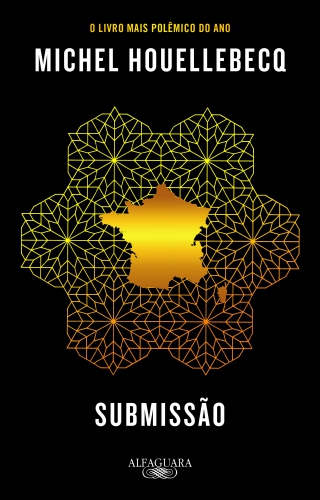 In the social realm, the patriarchal family is reestablished as the norm. Women are encouraged to choose families over careers. Sexual modesty in dress, behavior, advertising, and popular culture is rapidly adopted. Oh, and Muslim men are allowed up to four wives.
In the social realm, the patriarchal family is reestablished as the norm. Women are encouraged to choose families over careers. Sexual modesty in dress, behavior, advertising, and popular culture is rapidly adopted. Oh, and Muslim men are allowed up to four wives.
Crime, which is mostly Muslim crime to begin with, plummets, perhaps because they feel that France is now their country and they no longer wish to trash it.
Now, dear reader, ask yourself: wouldn’t you wallow in Schadenfreude to see the Leftist academics, feminists, and welfare scroungers get theirs? Wouldn’t you rejoice at such pro-family reforms? And that’s the problem.
In the long run, under Muslim rule, France will disappear, and the only force that could prevent it is the far Right. But the far Right, like every other group, has a majority of short-sighted people and a minority of far-sighted ones. The far-sighted can only mobilize the short-sighted based on their present discontents. Drain the sources of discontent, and the far-Right constituency will grow complacent. And without followers, the leadership will be powerless.
The far Right is also a coalition of people with varying complaints. Only a minority are true racial nationalists who realize that to be French, one must be white. A black can be a French citizen, speak French, eat French food, and be a Roman Catholic. Thus citizenship, language, culture, and religion are not essential to being French. But whiteness is.
Many Rightists do not see this, however. They are broad-brush anti-modernists and reactionaries; traditionalists with a large or small “T”; anti-feminists, masculinists, and “Men Going their Own Way”; or devotees of dead or dying religions and deposed dynasties. Such vague and anachronistic yearnings will never be fully satisfied anyway. There will never be another king Clovis, who will re-Christianize France. So many of these people would be quite happy to live under a moderate Muslim regime which is traditional, patriarchal, hierarchical, and appeals to transcendent values.
After all, we have ample evidence of impotent Rightists being willing to accept vague approximations to their values and submerge their reservations, as long as the approximation is better organized and more active than the Right, which isn’t hard. Thus in America, I have seen actual National Socialists converted into fervent enthusiasts for Ron Paul, Vladimir Putin, Alexander Dugin, Catholicism, Orthodox Christianity, Traditionalism — anything, really, as long as it appears to be a sizable and well-organized opposition to the existing establishment. You know very well what such weak reeds would do when confronted with an actual Muslim regime. After all, opposing Islam would be “anti-traditional.”
There are many lessons for White Nationalists here. First, never let a Muslim regime come to power. Instead, prevent that — and gain power for ourselves — by any means necessary. Second, we must work relentlessly to focus our people on the paramount importance of race and not to fall for approximations and half-measures. Third, once we have power, we should not be in any hurry. All we need to do is hold onto power — which means postponing more radical reforms for a later date — and be content to set social processes in motion that will in the long-term lead to the sort of society we want. Focus on education and the family. Be kind to workers and small businessmen. Encourage the white population to grow and the non-white population to emigrate [6]. Deliver prosperity, security, and peace to our constituents. And then wait.
The Jewish Question
Now you may be wondering where the Jews fit into this. As Guillaume Durocher points out [7], Houellebecq hints at the importance of Jewish power, but in his narrative, Jews have no agency whatsoever. They simply slouch off to Jerusalem when the Muslim Brotherhood comes to power. In France today, however, Jews are a formidable political force, and Muslims are far weaker than their numbers would predict. Indeed, Jews have played a dominant role in encouraging Muslim immigration and empowerment, and in stigmatizing French resistance. Perhaps Houellebecq thinks that Islam will turn out to be another golem that turns on its Jewish masters. Maybe he wishes to focus specifically on the susceptibility of the French to Muslim domination. Or perhaps he thinks that Jews can be persuaded to change sides, which strikes me as extremely naive [8].
Surrender and Collaboration
The next lesson of Submission concerns the psychology of surrender and collaboration. The main character of Submission is François, a 44-year-old professor of 19-century French literature in Paris. (He is a specialist on Joris-Karl Huysmans.) François is an only child (of course), the offspring of two selfish baby-boomers (divorced, of course) of the type that Houellebecq so masterfully skewers in his other books. He has had no contact with his parents in years, and he learns of their deaths only after the fact.
François is obsessed with sex (of course, since this is a Houellebecq novel). He has never married (of course). Instead, he has a series of transient relationships with young female students, who always seem to be the ones who break it off (of course), perhaps to show how strong they are.
François’ intellectual life is as empty as his personal one. The author of a brilliant dissertation, he has published one book, been promoted to full Professor, and now whiles away his time with petty academic politics.
Although a student of French literature, François knows very little about France. He seems utterly cut off from any sense of national identity. Left to his own devices, he eats nothing but Oriental, Middle Eastern, and Indian food, generally of the frozen or take-out varieties. (Let that sink in for a minute. How could any self-respecting Frenchman eat shwarma?) He lives in Paris’ Chinatown. He envies his Jewish soon-to-be-ex-girlfriend’s tribal identity, ruefully remarking that, “There is no Israel for me.” (Yes, but who made it so?)
François is also a chain-smoker and a massive alcoholic, although these hardly distinguish him from other European men today.
Desperately unhappy, François tries to follow Huysmans’ path into the Catholic Church, hoping it will provide a ready-made, all-encompassing meaning for his life. But it does not take. At one shrine, he has a quasi-mystical experience, but he interprets it as hypoglycemia. On another attempt, at a monastery, he flees after three days from the cold, discipline, deprivation, and forced sociability back to his solitude, cynicism, and cigarettes. Christianity demands sincere commitment, which François cannot give, and it offers very few creature comforts, which he cannot give up.
Naturally, François’ utter self-absorption goes along with political passivity. He barely took notice of politics until his country was torn away from him, and then he did absolutely nothing to fight it. When he hears of the possibility of a civil war, he wonders only if the deluge can be postponed till after his death. The very idea of fighting or dying for France would never have crossed his mind. But men who care about nothing higher than comfort and security, no matter how clever and civilized they may be, are no match for men who are willing to kill or die for higher values, no matter how stupid and primitive they may be.
After the Muslim takeover, François is forced into early retirement at full pension. But then he is slowly reeled back in by Robert Rediger, the Belgian-born convert to Islam who is put in charge of the educational system. First, at Rediger’s instigation, François is invited to edit an edition of Huysmans for the prestigious French publisher Pléiade. Then Rediger invites him to a reception, where they meet. At the reception, Redinger invites François to his home for a conversation, where Rediger reveals that he is recruiting distinguished scholars from the old system for the new Islamic University of Paris-Sorbonne. All François need do is convert to Islam, which he does.
Why does François convert to Islam rather than Catholicism? One reason is that Christianity is a feminine religion that inspires contempt, and Islam is a masculine religion that inspires admiration. But the main reason seems to be the fringe benefits. Christianity offered him swooning and self-denial. Islam offered him self-assertion and material advancement: a job at the Sorbonne, a huge salary, a house in a fashionable part of Paris, and most importantly, a cure for his sexual frustration and loneliness. Rediger offers him three wives, for starters: young, nubile, submissive Muslim girls to share his bed and bear his children.
Why does Houellebecq center his narrative on an academic? Because this novel is a thought experiment. Academia is the stronghold of the Left, which is still the strongest metapolitical force in our society, and if Islam can break its resistance, it can break anything else. Houellebecq realizes that academic males are pretty much all sexually frustrated wimps, dorks, and slobs: beta males oppressed by strong womyn in both their professional and personal lives. He believes they would welcome a regime that forces modesty in dress and advertisements, so they are not constantly tormented with sexual thoughts; a regime that restores male dominance in the workplace and bedroom; a regime that suppresses feminism and encourages female submission. Being married to four modern Western women sounds like hell on earth, but Islam might make polygamy quite workable. Houellebecq supports something I have long suspected: fundamentalist religions appeal to beta males as a way of controlling women. (“Jesus wants you to make me a sandwich, dear.”)
Polygamy, of course, is not the white way. But Rightists need to take note. Feminism is probably the greatest source of misery for men, women, and especially children today. White Nationalism is all about restoring the biological integrity of our race. That means not just creating homogeneously white living spaces for the reproduction and rearing of our kind, but also restoring traditional (and biological) sex roles: men as protectors and providers, women as mothers and nurturers. If we can promise to restore stable and loving families and homogeneous, high-trust communities, we can drain the swamps in which Leftists breed. After all, how many Leftists do you know who are lonely, dysfunctional, socially alienated products of broken families and communities?

Beware the Traditionalists
The most interesting character in Submission is Robert Rediger, the Education then Foreign Minister of the new regime. He is a master of persuasion who knows that academics suffer above all from sexual frustration and unrequited vanity. He is a master of religious apologetic, meaning that he is an exceedingly clever liar. He claims that the Koran is a great poem of praise for creation, when it is closer to gangsta rap both as poetry and edification. He claims that polygamy is eugenic, which it might be if Muslims didn’t marry blacks and their own first cousins.
Rediger is a large, masculine man, which makes him an unusual academic. But this comes as no surprise when we learn his history. As a young man in Belgium, Rediger was an ardent Right-wing nationalist. But he was never a racist or fascist, mind you. Just a broad-brush reactionary anti-modernist who wrote a dissertation on Nietzsche and René Guénon, anti-modernist thinkers with radically incompatible premises. This does not, however, prevent Rediger from shifting from one perspective to another whenever it suits him. Nietzsche destroyed Christianity for Rediger, and Guénon offered him a way into Islam, a religion he sees as more compatible with masculine and vitalist impulses.
The lesson here is obvious: if racial integrity is not paramount, then Traditionalism is a vector of Islamization. A demythologization of Traditionalism has long been on my agenda, and Houellebecq has convinced me to step up the timetable. Such an argument has two prongs. First, as I argued in my review of Jan Assmann’s Moses the Egyptian [11], the Traditionalist thesis of the transcendent unity of religions is actually heretical according to the Abrahamic faiths, Judaism, Christianity, and Islam, which reject all other religions as false. Second, the Traditionalists are well aware of this problem. Thus their assertion that the Abrahamic faiths are compatible with Traditionalism is merely an attempt to trick their adherents into tolerating esoteric paganism. (Arguing this thesis would require a reading of Ibn Tufayl’s Hayy Ibn Yaqzan [12] and Guénon’s Initiation and Spiritual Realization [13]
and Perspectives on Initiation [14]
.)
There is no Allah, and Muhammad was not his prophet. Therefore, whatever power Islam possesses is grounded in nature. If there is an overall lesson to Submission, it is that if our civilization falls out of harmony with nature and ceases to pass on its genes and values, it will be replaced by a civilization — no matter how backward and primitive — that is capable of doing so. And European man will disappear in a tide of fast-breeding, savage Sand People.
The Left and center-Right are deferential to Islam because they are decadent and devitalized. They sense its greater vitality, including its potential for violence. These people want to be subjugated, because no tyranny is worse than the fate of the atomized individual floating in the void of liberal, consumerist modernity. Liberal democracy and capitalism supply every human need, except to believe, belong, and obey. If our race is to be saved, then White Nationalists need to bring our societies back into harmony with nature. Whites must be forced to submit to our own nature, or we will end up submitting to aliens. And to do that, White Nationalists need to become an even more formidably vital — and intimidating — force than Islam. Clearly we’ve got work to do.



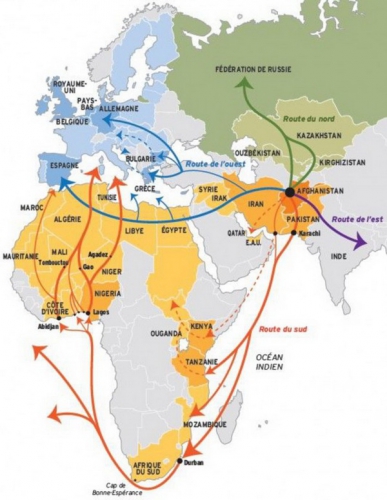
 Les anglophones surnomment cette voie d’exportation "the smack track" en argot américain, "la piste de l’héro". En fait, il s’agit d’un ensemble de routes aériennes et maritimes reliant le Pakistan et l’Iran, d’un côté, aux pays du Golfe et à l’Afrique de l’Est, de l’autre. Seule une partie de la drogue est destinée à la consommation régionale, estimée à quelque 2,6 tonnes d’héroïne pure. "Les zones de transit finissent toujours par devenir des lieux de consommation, explique Olivier Maguet, de Médecins du monde. Les narcos ont besoin d’intermédiaires locaux, qui peuvent être rémunérés en nature. Ces derniers cherchent alors à attirer de nouveaux consommateurs et à créer un marché sur place."
Les anglophones surnomment cette voie d’exportation "the smack track" en argot américain, "la piste de l’héro". En fait, il s’agit d’un ensemble de routes aériennes et maritimes reliant le Pakistan et l’Iran, d’un côté, aux pays du Golfe et à l’Afrique de l’Est, de l’autre. Seule une partie de la drogue est destinée à la consommation régionale, estimée à quelque 2,6 tonnes d’héroïne pure. "Les zones de transit finissent toujours par devenir des lieux de consommation, explique Olivier Maguet, de Médecins du monde. Les narcos ont besoin d’intermédiaires locaux, qui peuvent être rémunérés en nature. Ces derniers cherchent alors à attirer de nouveaux consommateurs et à créer un marché sur place."

 del.icio.us
del.icio.us
 Digg
Digg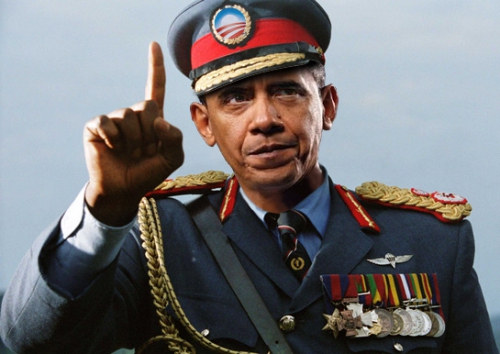


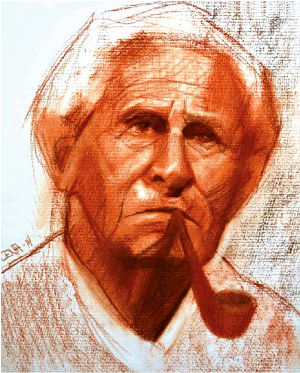 According to Catharine McKinnon, the new mantra that should be taught to children is: “Sticks and stones may break my bones, but words are infinitely worse.”
According to Catharine McKinnon, the new mantra that should be taught to children is: “Sticks and stones may break my bones, but words are infinitely worse.” 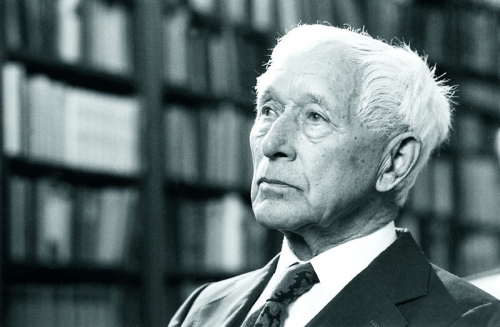
 Cuando estos días prepárabamos el excursus a la "Elucidación de la tradición", dedicado en dos entregas (
Cuando estos días prepárabamos el excursus a la "Elucidación de la tradición", dedicado en dos entregas (
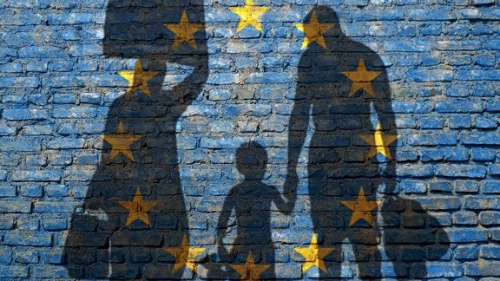


 « J’ai été élevé dans l’idée communiste. Pas du communisme soft. Mon père était laïc agressif. Je suis revenu au judaïsme traditionnel. J’ai fait tout un chemin. Je suis allé à la synagogue libérale israélite. J’ai commencé à m’intéresser à Israël, j’ai commencé à m’intéresser à l’histoire juive. Finalement les liens affectifs culturels profonds me relient au peuple juif, à l’ensemble du peuple juif. J’ai fait tout un chemin qu’on peut appeler de retour même si j’aime pas cette expression bondieusarde. Autrement dit, je me suis rendu compte que mes liens affectif me reliaient à l’ensemble du peuple juif. (…) Je m’intéresse aux marranes, aux juifs cachés, aux disciples de Sabbatai Tsevi, aux tribus perdus… je trouve qu’il y a quelque chose de poignant que même dans des circonstances extraordinaires, le judaïsme se soit préservé. » Conférence sur le thème « Judaïsme normatif et judaïsme vivant » organisé par Beit Haverim (« groupe juif gay et lesbien de France ») Source :
« J’ai été élevé dans l’idée communiste. Pas du communisme soft. Mon père était laïc agressif. Je suis revenu au judaïsme traditionnel. J’ai fait tout un chemin. Je suis allé à la synagogue libérale israélite. J’ai commencé à m’intéresser à Israël, j’ai commencé à m’intéresser à l’histoire juive. Finalement les liens affectifs culturels profonds me relient au peuple juif, à l’ensemble du peuple juif. J’ai fait tout un chemin qu’on peut appeler de retour même si j’aime pas cette expression bondieusarde. Autrement dit, je me suis rendu compte que mes liens affectif me reliaient à l’ensemble du peuple juif. (…) Je m’intéresse aux marranes, aux juifs cachés, aux disciples de Sabbatai Tsevi, aux tribus perdus… je trouve qu’il y a quelque chose de poignant que même dans des circonstances extraordinaires, le judaïsme se soit préservé. » Conférence sur le thème « Judaïsme normatif et judaïsme vivant » organisé par Beit Haverim (« groupe juif gay et lesbien de France ») Source : 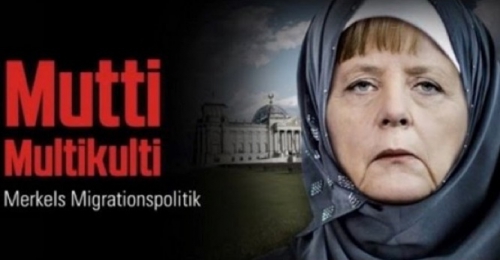
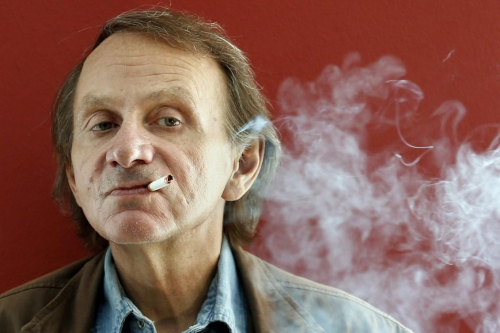
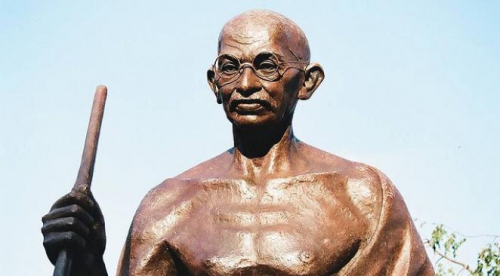
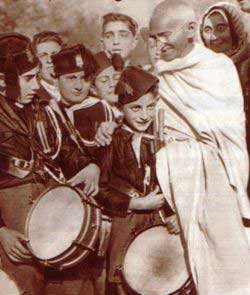 Un suceso trágico de índole bélica impacta en la opinión pública, mediante los medios de intoxicación de masas (llamarle “medios de comunicación” sería convertirse en cómplices de las conspiraciones del poder), inmediatamente se desencadena un efecto sobre las masas, recogiéndose lo que se había calculado recoger: lo mismo la adhesión masiva a una intervención militar que la recepción de “refugiados”. El pacifismo fue empleado magistralmente por el comunismo soviético que, durante la Guerra Fría, lo exportó a sus sucursales en todos los países que permanecían bajo la férula estadounidense: se minaba así la combatividad de la opinión pública de los países capitalistas y se neutralizaba cualquier esfuerzo bélico procedente de los gobiernos. Dábase el caso paradójico de que, mientras en occidente los comunistas reclamaban la “paz”, los países comunistas seguían rearmándose. La lección ha sido aprendida por las demás potencias, independientemente de su signo político.
Un suceso trágico de índole bélica impacta en la opinión pública, mediante los medios de intoxicación de masas (llamarle “medios de comunicación” sería convertirse en cómplices de las conspiraciones del poder), inmediatamente se desencadena un efecto sobre las masas, recogiéndose lo que se había calculado recoger: lo mismo la adhesión masiva a una intervención militar que la recepción de “refugiados”. El pacifismo fue empleado magistralmente por el comunismo soviético que, durante la Guerra Fría, lo exportó a sus sucursales en todos los países que permanecían bajo la férula estadounidense: se minaba así la combatividad de la opinión pública de los países capitalistas y se neutralizaba cualquier esfuerzo bélico procedente de los gobiernos. Dábase el caso paradójico de que, mientras en occidente los comunistas reclamaban la “paz”, los países comunistas seguían rearmándose. La lección ha sido aprendida por las demás potencias, independientemente de su signo político.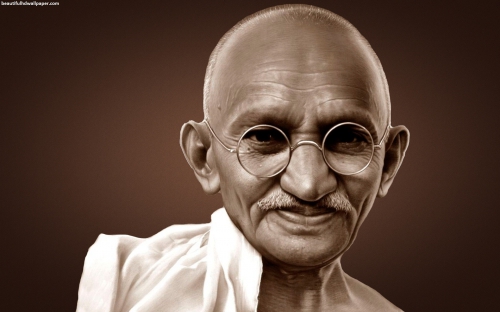
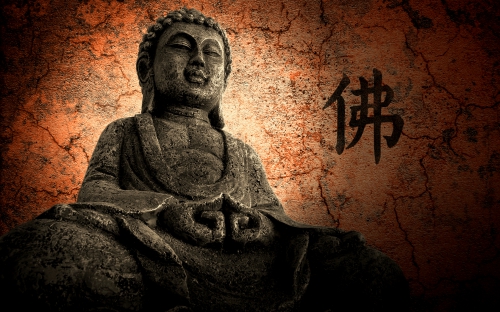



 Corto Maltés es un “gentilhombre de fortuna”, eufemismo tomado de R.L. Stevenson para designar a un pirata. Pero lo cierto es que, a lo largo de los 15 álbumes que constituyen el corpus de la saga – tal y como apareció entre 1967 y 1992 – escasamente aparece este personaje enfrascado en actividades de piratería stricto sensu. Lo suyo es más bien un vagabundeo desordenado y un tanto indolente, al albur de donde le lleven los vientos, los reclamos de la amistad o alguna empresa tan supuestamente crematística como quimérica. E indefectiblemente nuestro héroe terminará enrolado en las luchas descabelladas de algún grupo de rebeldes, guerrilleros o desperados, o enredado en los manejos turbios de algún grupo de conspiradores o de sociedad secreta que casi siempre le volverán a arrojar al casillero de salida… sin que a él parezca importarle demasiado. Los escenarios de sus andanzas son los típicos “grandes espacios” del relato clásico de aventuras: los mares del sur, los archipiélagos del Pacífico, los puertos del Caribe y las selvas sudamericanas, Extremo Oriente, Asia central, Siberia… y también, muy significativamente, ciertos lugares europeos dotados de un extraño misticismo: Irlanda, Venecia, Suiza…
Corto Maltés es un “gentilhombre de fortuna”, eufemismo tomado de R.L. Stevenson para designar a un pirata. Pero lo cierto es que, a lo largo de los 15 álbumes que constituyen el corpus de la saga – tal y como apareció entre 1967 y 1992 – escasamente aparece este personaje enfrascado en actividades de piratería stricto sensu. Lo suyo es más bien un vagabundeo desordenado y un tanto indolente, al albur de donde le lleven los vientos, los reclamos de la amistad o alguna empresa tan supuestamente crematística como quimérica. E indefectiblemente nuestro héroe terminará enrolado en las luchas descabelladas de algún grupo de rebeldes, guerrilleros o desperados, o enredado en los manejos turbios de algún grupo de conspiradores o de sociedad secreta que casi siempre le volverán a arrojar al casillero de salida… sin que a él parezca importarle demasiado. Los escenarios de sus andanzas son los típicos “grandes espacios” del relato clásico de aventuras: los mares del sur, los archipiélagos del Pacífico, los puertos del Caribe y las selvas sudamericanas, Extremo Oriente, Asia central, Siberia… y también, muy significativamente, ciertos lugares europeos dotados de un extraño misticismo: Irlanda, Venecia, Suiza…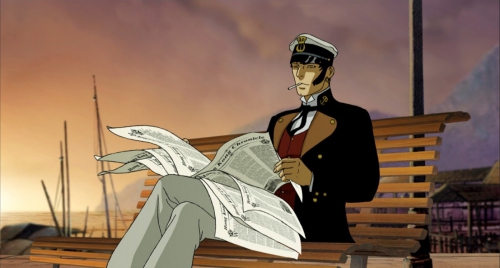



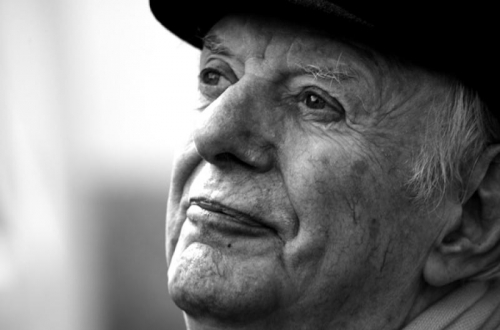

![MilliauFly[1].jpg](http://synthesenationale.hautetfort.com/media/01/01/1005960772.jpg)

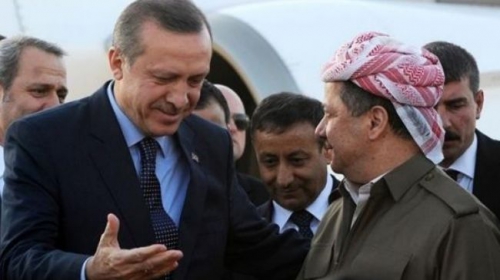
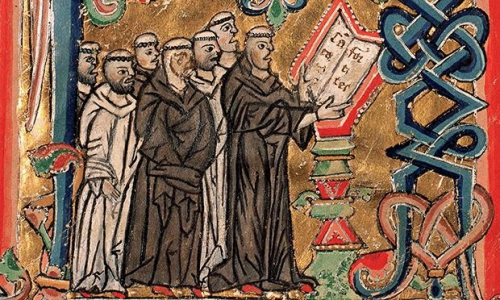
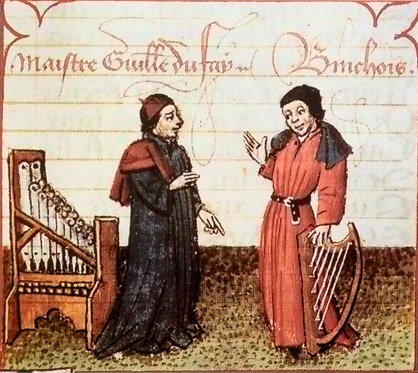 Jean de Vaerwere, dit Johannes Tinctoris, né en 1435 à Nivelles, dans le Brabant wallon, affine en 1477 le règles de l’écriture à plusieurs voix dans un remarquable traité de contrepoint, Liber de arte contrapuncti, suivi de trois autres traités tous publiés en Italie, qui vont servir de référence. Son successeur picard Josquin des Prés, qui mourra à Condé-sur-l’Escault en 1541, passera lui aussi par Milan, la Sixtine romaine et Ferrare. La délocalisation franco-flamande est totale. D’Andrea Gabrieli (Venise) à Palestrina (Rome) en passant par Ingenieri (Crémone) ou Monteverdi (Mantoue), tous les grands maîtres italiens sont formés par des Nordiques.
Jean de Vaerwere, dit Johannes Tinctoris, né en 1435 à Nivelles, dans le Brabant wallon, affine en 1477 le règles de l’écriture à plusieurs voix dans un remarquable traité de contrepoint, Liber de arte contrapuncti, suivi de trois autres traités tous publiés en Italie, qui vont servir de référence. Son successeur picard Josquin des Prés, qui mourra à Condé-sur-l’Escault en 1541, passera lui aussi par Milan, la Sixtine romaine et Ferrare. La délocalisation franco-flamande est totale. D’Andrea Gabrieli (Venise) à Palestrina (Rome) en passant par Ingenieri (Crémone) ou Monteverdi (Mantoue), tous les grands maîtres italiens sont formés par des Nordiques.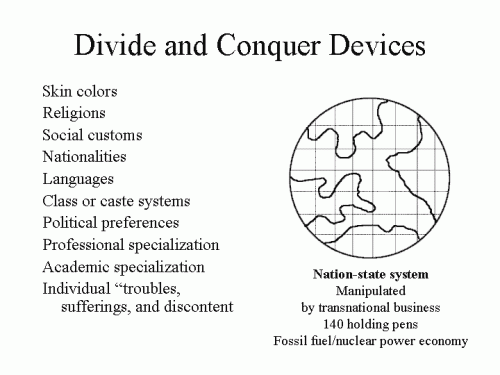
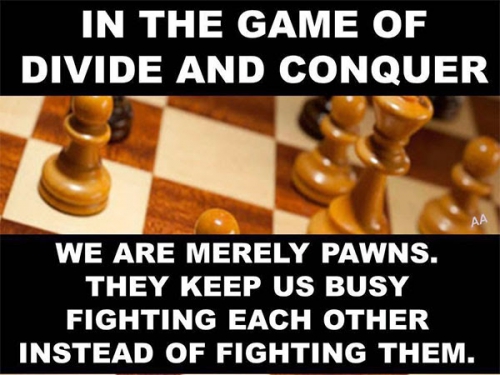
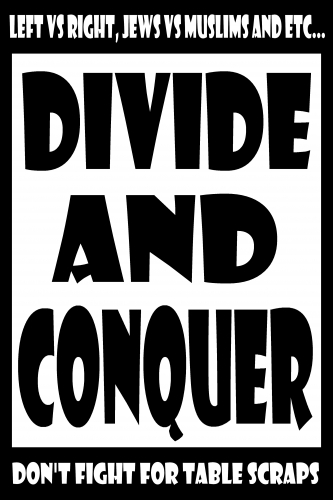 For many years the US Empire has been employed to do the global elite’s dirty bidding. After using Osama bin Laden’s al Qaeda originally to defeat an overextended Soviet Empire in the world’s empire graveyard
For many years the US Empire has been employed to do the global elite’s dirty bidding. After using Osama bin Laden’s al Qaeda originally to defeat an overextended Soviet Empire in the world’s empire graveyard  The growing list of US victimized nations-turned-war-ravaged
The growing list of US victimized nations-turned-war-ravaged  Another alarming consequence of this NWO agenda that’s never been more glaringly obvious is the out of control
Another alarming consequence of this NWO agenda that’s never been more glaringly obvious is the out of control 
 Le titre du dernier livre de la collection des Insoumis, éditée par Les Belles Lettres, fait inévitablement penser, à une lettre près, au titre en français du célèbre film de Stanley Kubrick. Il donne déjà le ton de ce volume, celui d'un pamphlet assumé.
Le titre du dernier livre de la collection des Insoumis, éditée par Les Belles Lettres, fait inévitablement penser, à une lettre près, au titre en français du célèbre film de Stanley Kubrick. Il donne déjà le ton de ce volume, celui d'un pamphlet assumé.

 De controverse zet in Duitsland niet alleen links tegen rechts op, maar snijdt ook doorheen de christendemocratische familie die bestaat uit de CDU van bondskanselier Angela Merkel en haar Beierse zusterpartij CSU van Horst Seehofer.
De controverse zet in Duitsland niet alleen links tegen rechts op, maar snijdt ook doorheen de christendemocratische familie die bestaat uit de CDU van bondskanselier Angela Merkel en haar Beierse zusterpartij CSU van Horst Seehofer. 
